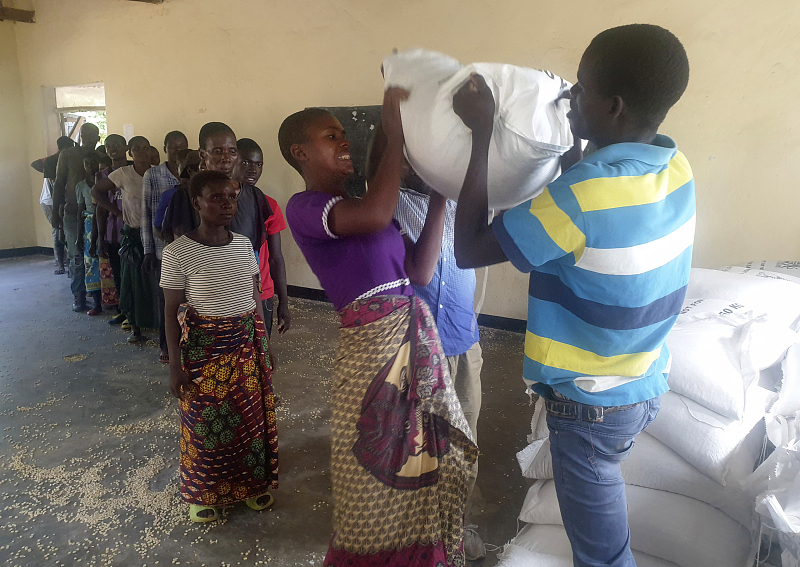
More than 270,000 children threatened by severe acute malnutrition in southern Africa: UNICEF
The United Nations International Children’s Emergency Fund (UNICEF) warned that more than 270,000 children are expected to suffer from life-threatening severe acute malnutrition this year due to a severe drought that has affected large parts of Southern Africa.
Several countries in this region are experiencing humanitarian crises of varying degrees because of the current El Niño weather phenomenon. At least six countries, including Botswana, Lesotho, Malawi, Namibia, Zambia, and Zimbabwe, have declared states of disaster due to the extreme weather conditions and appealed for humanitarian assistance.
UNICEF said that 7.4 million children in Lesotho, Malawi, Namibia, Zambia and Zimbabwe are living in child food poverty, and more than 25 percent of those children (two million) are surviving on extremely poor diets.
UNICEF Regional Director for Eastern and Southern Africa, Etleva Kadilli said the humanitarian needs children are facing due to the current situation are extremely concerning.
“Increasing food insecurity and malnutrition, challenges in accessing safe water and sanitation, as well as risks to disease outbreaks such as cholera are a serious threat,” Kadilli said. “Thousands of children are on the brink of being irreversibly impacted in their health and growth because of the climate-related crisis and this warning should not go unheard by the international community.”
Kadilli added that innovative collaboration, ideas and financing will help protect vulnerable populations, especially women and children, from some of the severe consequences of climate crises in the region. Kadilli cited mother-led care groups in Zimbabwe and a large-scale multi-sectoral nutrition program in Zambia as successful examples of such initiatives.
“Investment and innovation in building family and societal resilience are vital. Frameworks that stay fit for future purpose, including diverse food systems, clean water, sanitation services, climate-informed education, and climate-responsive health care, must be prioritized, alongside the safeguarding of key services and systems for children to ensure quality and uninterrupted access.”
UNICEF also reiterated that lifesaving programs across the region needed to be urgently expedited and increased to lower the risks of increased numbers of children becoming malnourished.






